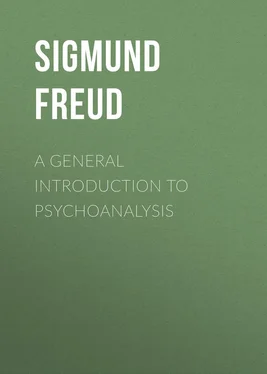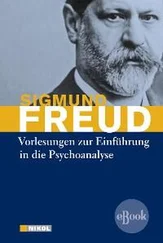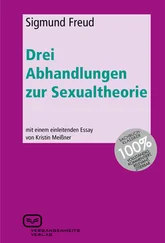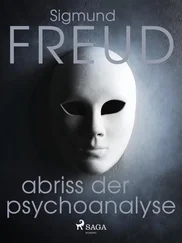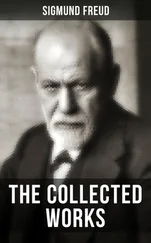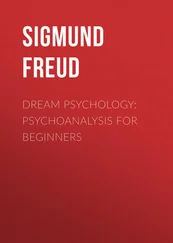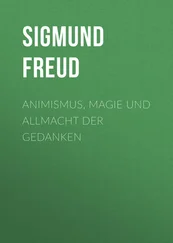Sigmund Freud - A General Introduction to Psychoanalysis
Здесь есть возможность читать онлайн «Sigmund Freud - A General Introduction to Psychoanalysis» — ознакомительный отрывок электронной книги совершенно бесплатно, а после прочтения отрывка купить полную версию. В некоторых случаях можно слушать аудио, скачать через торрент в формате fb2 и присутствует краткое содержание. Жанр: psy_theraphy, foreign_psychology, foreign_antique, foreign_prose, на английском языке. Описание произведения, (предисловие) а так же отзывы посетителей доступны на портале библиотеки ЛибКат.
- Название:A General Introduction to Psychoanalysis
- Автор:
- Жанр:
- Год:неизвестен
- ISBN:нет данных
- Рейтинг книги:4 / 5. Голосов: 1
-
Избранное:Добавить в избранное
- Отзывы:
-
Ваша оценка:
- 80
- 1
- 2
- 3
- 4
- 5
A General Introduction to Psychoanalysis: краткое содержание, описание и аннотация
Предлагаем к чтению аннотацию, описание, краткое содержание или предисловие (зависит от того, что написал сам автор книги «A General Introduction to Psychoanalysis»). Если вы не нашли необходимую информацию о книге — напишите в комментариях, мы постараемся отыскать её.
A General Introduction to Psychoanalysis — читать онлайн ознакомительный отрывок
Ниже представлен текст книги, разбитый по страницам. Система сохранения места последней прочитанной страницы, позволяет с удобством читать онлайн бесплатно книгу «A General Introduction to Psychoanalysis», без необходимости каждый раз заново искать на чём Вы остановились. Поставьте закладку, и сможете в любой момент перейти на страницу, на которой закончили чтение.
Интервал:
Закладка:
Do not be offended, therefore, if, for the present, I treat you as I treat these neurotic patients. Frankly, I shall dissuade you from coming to hear me a second time. With this intention I shall show what imperfections are necessarily involved in the teaching of psychoanalysis and what difficulties stand in the way of gaining a personal judgment. I shall show you how the whole trend of your previous training and all your accustomed mental habits must unavoidably have made you opponents of psychoanalysis, and how much you must overcome in yourselves in order to master this instinctive opposition. Of course I cannot predict how much psychoanalytic understanding you will gain from my lectures, but I can promise this, that by listening to them you will not learn how to undertake a psychoanalytic treatment or how to carry one to completion. Furthermore, should I find anyone among you who does not feel satisfied with a cursory acquaintance with psychoanalysis, but who would like to enter into a more enduring relationship with it, I shall not only dissuade him, but I shall actually warn him against it. As things now stand, a person would, by such a choice of profession, ruin his every chance of success at a university, and if he goes out into the world as a practicing physician, he will find himself in a society which does not understand his aims, which regards him with suspicion and hostility, and which turns loose upon him all the malicious spirits which lurk within it.
However, there are always enough individuals who are interested in anything which may be added to the sum total of knowledge, despite such inconveniences. Should there be any of this type among you, and should they ignore my dissuasion and return to the next of these lectures, they will be welcome. But all of you have the right to know what these difficulties of psychoanalysis are to which I have alluded.
First of all, we encounter the difficulties inherent in the teaching and exposition of psychoanalysis. In your medical instruction you have been accustomed to visual demonstration. You see the anatomical specimen, the precipitate in the chemical reaction, the contraction of the muscle as the result of the stimulation of its nerves. Later the patient is presented to your senses; the symptoms of his malady, the products of the pathological processes, in many cases even the cause of the disease is shown in isolated state. In the surgical department you are made to witness the steps by which one brings relief to the patient, and are permitted to attempt to practice them. Even in psychiatry, the demonstration affords you, by the patient's changed facial play, his manner of speech and his behavior, a wealth of observations which leave far-reaching impressions. Thus the medical teacher preponderantly plays the role of a guide and instructor who accompanies you through a museum in which you contract an immediate relationship to the exhibits, and in which you believe yourself to have been convinced through your own observation of the existence of the new things you see.
Unfortunately, everything is different in psychoanalysis. In psychoanalysis nothing occurs but the interchange of words between the patient and the physician. The patient talks, tells of his past experiences and present impressions, complains, confesses his wishes and emotions. The physician listens, tries to direct the thought processes of the patient, reminds him of things, forces his attention into certain channels, gives him explanations and observes the reactions of understanding or denial which he calls forth in the patient. The uneducated relatives of our patients – persons who are impressed only by the visible and tangible, preferably by such procedure as one sees in the moving picture theatres – never miss an opportunity of voicing their scepticism as to how one can "do anything for the malady through mere talk." Such thinking, of course, is as shortsighted as it is inconsistent. For these are the very persons who know with such certainty that the patients "merely imagine" their symptoms. Words were originally magic, and the word retains much of its old magical power even to-day. With words one man can make another blessed, or drive him to despair; by words the teacher transfers his knowledge to the pupil; by words the speaker sweeps his audience with him and determines its judgments and decisions. Words call forth effects and are the universal means of influencing human beings. Therefore let us not underestimate the use of words in psychotherapy, and let us be satisfied if we may be auditors of the words which are exchanged between the analyst and his patient.
But even that is impossible. The conversation of which the psychoanalytic treatment consists brooks no auditor, it cannot be demonstrated. One can, of course, present a neurasthenic or hysteric to the students in a psychiatric lecture. He tells of his complaints and symptoms, but of nothing else. The communications which are necessary for the analysis are made only under the conditions of a special affective relationship to the physician; the patient would become dumb as soon as he became aware of a single impartial witness. For these communications concern the most intimate part of his psychic life, everything which as a socially independent person he must conceal from others; these communications deal with everything which, as a harmonious personality, he will not admit even to himself.
You cannot, therefore, "listen in" on a psychoanalytic treatment. You can only hear of it. You will get to know psychoanalysis, in the strictest sense of the word, only by hearsay. Such instruction even at second hand, will place you in quite an unusual position for forming a judgment. For it is obvious that everything depends on the faith you are able to put in the instructor.
Imagine that you are not attending a psychiatric, but an historical lecture, and that the lecturer is telling you about the life and martial deeds of Alexander the Great. What would be your reasons for believing in the authenticity of his statements? At first sight, the condition of affairs seems even more unfavorable than in the case of psychoanalysis, for the history professor was as little a participant in Alexander's campaigns as you were; the psychoanalyst at least tells you of things in connection with which he himself has played some role. But then the question turns on this – what set of facts can the historian marshal in support of his position? He can refer you to the accounts of ancient authors, who were either contemporaries themselves, or who were at least closer to the events in question; that is, he will refer you to the books of Diodor, Plutarch, Arrian, etc. He can place before you pictures of the preserved coins and statues of the king and can pass down your rows a photograph of the Pompeiian mosaics of the battle of Issos. Yet, strictly speaking, all these documents prove only that previous generations already believed in Alexander's existence and in the reality of his deeds, and your criticism might begin anew at this point. You will then find that not everything recounted of Alexander is credible, or capable of proof in detail; yet even then I cannot believe that you will leave the lecture hall a disbeliever in the reality of Alexander the Great. Your decision will be determined chiefly by two considerations; firstly, that the lecturer has no conceivable motive for presenting as truth something which he does not himself believe to be true, and secondly, that all available histories present the events in approximately the same manner. If you then proceed to the verification of the older sources, you will consider the same data, the possible motives of the writers and the consistency of the various parts of the evidence. The result of the examination will surely be convincing in the case of Alexander. It will probably turn out differently when applied to individuals like Moses and Nimrod. But what doubts you might raise against the credibility of the psychoanalytic reporter you will see plainly enough upon a later occasion.
Читать дальшеИнтервал:
Закладка:
Похожие книги на «A General Introduction to Psychoanalysis»
Представляем Вашему вниманию похожие книги на «A General Introduction to Psychoanalysis» списком для выбора. Мы отобрали схожую по названию и смыслу литературу в надежде предоставить читателям больше вариантов отыскать новые, интересные, ещё непрочитанные произведения.
Обсуждение, отзывы о книге «A General Introduction to Psychoanalysis» и просто собственные мнения читателей. Оставьте ваши комментарии, напишите, что Вы думаете о произведении, его смысле или главных героях. Укажите что конкретно понравилось, а что нет, и почему Вы так считаете.
